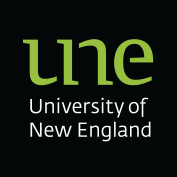The UNEBS R&RT Committee and the AARES Seminar by Professor Garry Griffith, UNE Business School
Seminar Title: Developing New Value Chains for Small-Scale and Emerging Cattle Farmers in South Africa
The UNEBS R&RT Committee and the AARES New England Branch cordially invite you to attend to the next seminar. The session will be held on Friday 4th December in Lecture Theatre 2, W40 in EBL Building at 12:00PM.
Abstract
It is widely recognised that cattle managed by small-scale and emerging farmers in South Africa are a significantly under-utilised resource for generating income for rural families and communities and for contributing to feeding the nation’s poor consumers. A previous project focused on integrating this sector into the existing feedlot value chain, which provides about 75% of the beef consumed in South Africa. Valuable outcomes from this project at the farm level have been well documented but little integration has been evident higher up the value chain. Further, many of the cattle managed by small-scale and emerging farmers are not suitable for feedlot finishing and many of these farmers prefer to keep older animals for social and cultural reasons rather than sell weaners into the feedlots. These older animals are discriminated against in the South African beef classification system and consistently receive lower prices/kg than younger grain-fed animals, even though there is no scientific evidence to support the basis for market prices being age based, all else being equal. Since these older animals are sold primarily into low-value local markets, there is little incentive for producers or value chain partners to invest in a high quality pasture-fed beef value chain.
Recent survey data has confirmed the existence of a large and growing segment of middle and high income South African consumers who prefer healthy and sustainable attributes in their food purchases. One of the major South African supermarket chains, Woolworths, is heavily involved in this market segment in most food groups, but only in a minor way in beef due to the constraints imposed by the current beef classification system. Woolworths in fact imports a small amount of high value pasture-fed beef from Namibia to try and meet the latent demand from their customers. South Africa is a net importer of both beef and feeder cattle.
The focus of the project reviewed in this seminar is to undertake the research necessary to develop a wider range of market outlets, products and value chains for beef produced by the small-scale and emerging sector in South Africa. In particular, the project aims to design, trial and establish new value chains to supply high-quality niche-markets for pasture-finished cattle in South Africa (including cattle finished using other types of non-grain finishing systems). The research question posed is whether a high-quality pasture-finished beef product derived from the small-scale and emerging sector can be developed for the commercial market that meets consumers’ needs and that is cost–effective to produce and deliver to the market?
Through setting a number of outcome-focussed objectives, working with three commercial value chain partners (including Woolworths) in different regions, developing a network of cooperatives to ensure supply, and putting in place a measuring, monitoring and evaluation process, it is anticipated that the project will lead to (1) effective networks of farmer partnerships across the small-scale and emerging sector and with regional value chain partners; (2) increased capacity of the project’s farmers, extension officers, technical staff, scientists and managers with regard to development of new market systems, value chains and partnerships for small-scale and emerging farmers; (3) better developed physical, natural, financial, social, environmental, human, knowledge and cultural forms of capital in rural communities; (4) new and/or improved theories, tools and mechanisms related to high-value beef products and effective and efficient value chain partnerships; and (5) enhanced capacity to realise sustainable beef industry growth in small-scale and emerging communities in South Africa.
In this seminar I will look back on the first year of the project. I will discuss the difficulties encountered in designing and implementing the project, and I will review the progress towards achieving the economic, social and environmental outcomes.
Garry Griffith is Adjunct Professor at UNE Business School. He was a Principal Research Scientist with the NSW Government for 38 years, until his retirement in 2011. Garry also led the Economics programs in the Beef and Sheep Cooperative Research Centres. He studied at the University of New England, at Macquarie University and at the University of Guelph in Canada. His major research interests are in the application of economic models of the Australian livestock industries to predict the impacts of changes in production technologies, advertising programs, and government policies; the links between the competitive structure of markets and the distribution of the benefits from effective technological change; and price formation processes in food and fibre markets and in the changing nature of the relationships between farm and retail prices. Professor Griffith currently holds part-time research positions in the UNE Business School at the University of New England and in Agriculture and Food Systems at the University of Melbourne. He also holds honorary positions at the University of Adelaide and the University of Pretoria, and has ongoing advisory roles with the Australian Centre for International Agricultural Research (ACIAR), Meat and Livestock Australia (MLA) and Genomics Canada.


Recent Comments